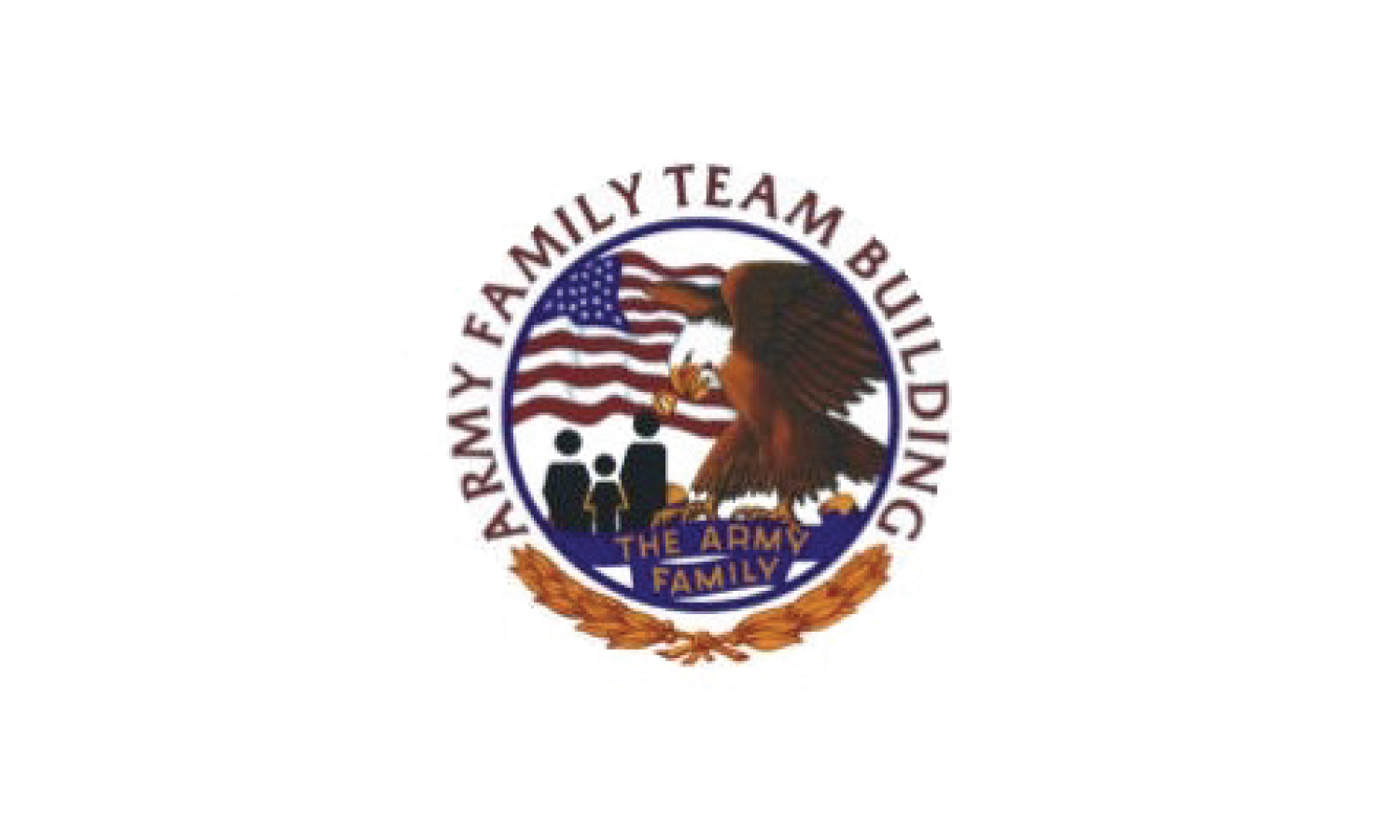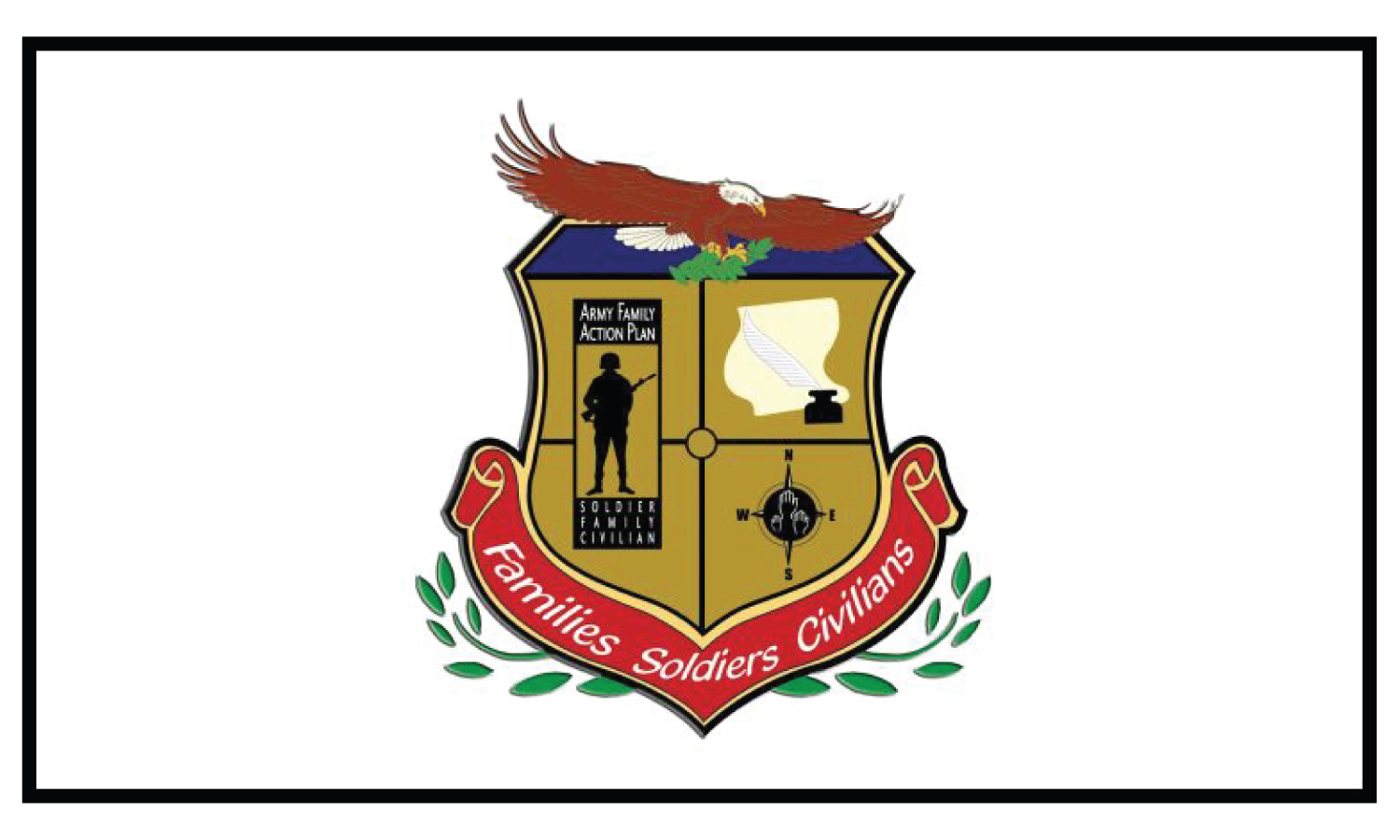- ACS Resource Book 2023
- ACS Welcome
-
ACS invites you into a world of education, opportunity and discovery while offering programs and services that promote self-reliance, resilience, and stability during war and peace.
View the many programs and services ACS has to offer by searching the Community Support tab.*
- Army Family Action Plan
- Army Family Team Building
- Army Volunteer Corps
- EFMP (Exceptional Family Member Program)
- Employment Readiness
- Family Advocacy Program
- Family Enrichment Program
- Financial Readiness
- Information & Referral Program
- Mobilization, Deployment, and Support Stability Operations
- New Parent Support Program
- Relocation Readiness Program
- SHARP (Sexual Harassment, Assault Reporting & Prevention)
- Soldier and Family Assistance Center
- Survivor Outreach Services
- Victim Advocacy Program
- Warrior Family Community Partnership
* Not all programs are available at all garrisons.
- Information and Referral Program
-
Main information number: +1 (337)-531-6066
Building 920, +1 (337)-531-1941-front desk
Building 924, +1(337)-531-9426-front desk
• Provides information to Soldiers and Family members regarding military and civilian resources available to address a wide range of client requests.
• We also provide ACS Overview classes/briefs to soldiers, units, agencies on post. Just give us a call at +1(337)-531-6066.
- Army Volunteer Corps (AVC)
-
The Fort Johnson Army Volunteer Corp seeks innovative ideas and processes to improve the quality of life at Fort Johnson through the use of volunteer agencies. We offer quality volunteer work experiences in environments where volunteers are appreciated and valued.
Administrative, medical, mentoring, teaching and coaching are a few of the opportunities that are available. Many agencies have flexible schedules and some even reimburse you for childcare. You can volunteer for a day, an evening, for a one-time event or for ongoing activities for as long as you desire.
Why Volunteer?
For the volunteer: Build your resume, contribute to the community, meet new people, share expertise, gain new skills and work experience, be challenged.
For the community: Develop new programs, sustain programs, enrich the quality of life for Soldiers and their families, price and ownership.
Recognition: Volunteer of the Quarter, Installation Impact awards, national and agency awards.
Getting Started
Complete a volunteer registration packet, which includes Volunteer Agreement DD Form 2793 and if you are under 18, the Parental Permission Form DA Form 5671. Register online at MyArmyOneSource. Each agency offers orientation and training. Training may include, first aid, office administration, tax preparation, train the trainer, coaching skills, etc. Volunteers may attend the volunteer manager/supervisor training as well. The Volunteer Corps coordinator can help you to find an opportunity that matches your interests or talents and assist you with the application process.
Volunteer Management Information System Basic Training - VMIS 101 - This class covers the use of VMIS, including registration, uploading positions in your organization, and input of monthly volunteer hours.
Volunteer Administration Training - This class covers volunteer regulations, files, awards and the Volunteer Information Management System (VMIS)
Army Volunteer Coordinator
- Employment Readiness Program (ERP)
-
The Employment Readiness Program (ERP) offers resources to help with your career plan and job search. Whether you’re a military spouse or Family member who just moved to a new installation, Retiree, or DoD civilian looking for new opportunities, or active duty Military, active Reserve, National Guard member, or Wounded Warrior, we’re here to help.
Our services include:
- Federal application process workshop
- Up-to-date information on local, national, and international employment opportunities, job market trends and education, and volunteer resources
- Classes and seminars on self-assessment and career exploration, resume writing, interviewing techniques, dressing for success, networking, and entrepreneurship.
- Résumé critiques
- Career counseling and individual career assessments
- Job fairs and other hiring events
- Teen/youth employment information
Contact your Employment Readiness Program manager (ERPM) for more information.
- Army Emergency Relief (AER) Overview
-
Overview
Army Emergency Relief is the U.S. Army's own nonprofit organization dedicated to alleviating financial distress on the force. AER provides grants and zero-interest loans to Active Duty and Retired Soldiers and their Families. Over 4 million Soldiers supported since 1942. AER officers are conveniently located at installations around the world. Visit ArmyEmergencyRelief.org to learn more.
Education Programs
AER’s Education Program is a secondary mission to help Army Families with the costs of education. The three separate scholarship programs are:
Stateside Spouse Education Assistance Program
• Applicant must be the Spouse or widow(er) of an active duty or retired Soldier and reside in the United States.
• Stateside applicants must be full time students.
• First undergraduate degrees only.
• Active duty military personnel are not eligible.Overseas Spouse Education Assistance Program Major General James Ursano Scholarship Fund for Dependent Children.
Overseas Spouse Education Assistance Program
• Applicants must be a Spouse of an active duty Soldier assigned in Europe, Korea, Japan, or Okinawa.
• Applicants must physically reside with the Soldier at the assigned location.
• First undergraduate degrees only.
• Off post students are not eligible.
• Spouses may be part time or full time students.Major General James Ursano Scholarship Fund for Dependant Children
• Dependent children, stepchildren, or legally adopted children of Army Soldiers on active duty, retired or deceased while in active duty or retired status.The children of Grey Area Reservists/National Guard are eligible as well.
Scholarship awards will be awarded up to half the cost of tuition. Scholarship awards are based on financial need, as evidenced by income, assets, Family size, and special circumstances.
Applications and instructions are available for all the scholarships on the AER website at https://www.armyemergencyrelief.org/resources/
- AER Resources and Forms
-
Want to take charge of your finances? The Army's Financial Readiness Program (FRP) and Consumer Advocacy Services can help with comprehensive educational and counseling programs. Learn about debt, consumer advocacy and protection, money management, credit, financial planning, insurance, and consumer issues. Through classroom training and individual counseling, participants can learn how to save and invest money, establish savings goals, eliminate debt, and save for emergencies.
We offer:
- Financial Readiness Program (FRP). FRP provides comprehensive educational and counseling programs in personal financial readiness. The program covers indebtedness, consumer advocacy and protection, money management, credit, financial planning, insurance, and consumer issues. Other services offered include mandatory financial literacy, financial planning for transitioning Soldiers, financial counseling for deployed Soldiers and their Families, and the Department of Defense Family Subsistence Supplemental Allowance Program.
- Army Emergency Relief (AER). AER is the US Army's own nonprofit organization dedicated to alleviating financial distress in the force. AER provides grants and zero-interest loans to active-duty and retired Soldiers and their Families. AER has supported over 4 million Soldiers since 1942. AER offices are conveniently located at installations around the world. Visit ArmyEmergencyRelief.org to learn more.
- Online Support and Education. Go to Financial Frontline for self-service financial literacy education and help.
Here are some other financial resources for Soldiers and their Families:
- Blended Retirement System. The Blended Retirement System (BRS) combines elements of the legacy retirement system with benefits similar to those offered in many civilian 401(k) plans. Get smart on retirement benefits with the Army Retirement Services Office and Joint Knowledge Online Training.
- Financial Readiness Affiliates
(Government Links)- Thrift Savings Plan (TSP). The TSP is a federal government-sponsored retirement savings and investment plan available to both federal civilian employees and members of the uniformed services. The TSP offers the same type of savings and tax benefits that many private corporations offer their employees under 401(k) plans. The retirement income a TSP account provides will depend on working-year contributions and the earnings on those contributions. Learn more at the official Thrift Savings Plan website.
- Consumer Financial Protection Bureau (CFPB). The CFPB makes markets for consumer financial products and services work for Americans — whether they are applying for a mortgage, choosing among credit cards, or using any number of other consumer financial products. The CFPB gives consumers the information they need to understand the terms of their agreements with financial companies. Learn more about the CFPB, visit the CFPB on-demand forum and tools website, or order free CFPB publications.
(Non-Government Links, No Endorsement Implied)
- Better Business Bureau (BBB) Military Line. The BBB Military Line provides free resources to our military communities in the areas of financial literacy and consumer protection through the efforts of 112 BBBs across the US. Visit the BBB Military Line to learn more.
- Financial Readiness Program (FRP). FRP provides comprehensive educational and counseling programs in personal financial readiness. The program covers indebtedness, consumer advocacy and protection, money management, credit, financial planning, insurance, and consumer issues. Other services offered include mandatory financial literacy, financial planning for transitioning Soldiers, financial counseling for deployed Soldiers and their Families, and the Department of Defense Family Subsistence Supplemental Allowance Program.
- Family Advocacy Program
-
The U.S. Army Family Advocacy Program (FAP) helps Soldiers and their Families recognize and prepare for the unique challenges of military lifestyles. Our services include seminars, workshops, counseling, and intervention to help strengthen the relationships of Army Families.
We are also dedicated to the prevention domestic abuse, child abuse, and neglect of Soldiers and their Families through offering education, prompt reporting, investigation, intervention, and treatment.
To make a report of spouse or intimate partner abuse/neglect, child abuse/neglect, call the installation Reporting Point of Contact, known at Fort Johnson as the HOPELINE, at (337) 531-HOPE/4673. The HOPELINE is answered 24 hours a day/365 days a year. To report Child abuse/neglect in the State of Louisiana, please call the Department of Children and Family Services at 1-855-4LA-KIDS (1-855-452-5437) toll-free, 24 hours a day/365 days a year.
If you are a victim of spouse or intimate partner abuse, you may call the Victim Advocacy Program Hotline at (337) 424-7494 and speak directly to a Victim Advocate, who can offer restricted/unrestricted reporting options. The Victim Advocacy Program Hotline is also answered 24 hours a day/365 days a year.
The National Domestic Violence Hotline is also available at +1 (800) 799-7233.
For more information or for questions about the program, contact the Family Advocacy Program Manager at +1 (337) 531-4653
- Troop Trainer
-
additional content area
- New Parent Support Program
-

The New Parent Support Program (NPSP) is a free, voluntary service that offers education and support to Fort Johnson parents expecting a baby or with a child under the age of 36 months. Our team of registered nurses (RNs) and a social worker (LCSW), understand the stressors of parenting and the unique challenges of raising a family in the military. We provide encouragement and education throughout your pregnancy, after delivery, and during all stages of development for your newborn and young child
Home Visitation
· Parenting information and support in the comfort of your home
· Education and resources for: pregnancy, newborn care, breastfeeding, growth and development, home safety, nutrition, sleep issues, positive discipline, potty training, and parenting in the military
· We offer one-on-one Infant Massage class during home visits
· Home visits are provided within a 50 mile radius of Fort Johnson
Baby Boot Camp
· Hands-on class about feeding, bathing, diapering, and soothing your newborn
· For expectant parents in their 1st, 2nd, or 3rd trimester
· Please call NPSP to register
Infant Massage
· Hands-on class with your infant to learn about the soothing benefits of massage
· Infant massage may help with crying, digestion/gas issues, growth and development and creating a stronger bond with your little one
· Please call NPSP to register
Playmorning
· Held every Tuesday, from 9:00-11:00 a.m. at ACS
· For parents and their children ages six weeks up to 36 months
· Stay and play, do a craft, listen to a story, and sing songs
· No registration required
- Relocation Readiness Program (RRP)
-
Moving is a part of life for Soldiers, civilian government employees and their Families. The Army Community Service Relocation Readiness Program (RRP) is here to help with a comprehensive support system, whether it’s your first move or the last of many. We have all kinds of information and resources to help you and your family navigate your next military move.
Fort Johnson Welcome Packets – This packet contains useful information including fliers, and brochures for the incoming Soldier and their Families. This includes information about the installation and local community areas, these are filled upon request from the individual or unit.
Newcomer and Re-entry Orientation – This is an installation briefing conducted to assist all active duty personnel and DoD civilian employees by providing information about their new duty station, JRTC and Fort Johnson. This orientation is conducted each week on Thursdays, at the ACS Center, Building 920, located on Bell Richard Avenue. Sign-in begins at 0900.
Representatives of JRTC and Fort Johnson provide information about Fort Johnson agency and is addressed as the place of duty for all incoming Soldiers. Lunch is provided by corporate sponsors through the Directorate of Family and Morale, Welfare, and Recreation (DFMWR). This orientation day focuses primarily on the emotional and situational stress of relocation and the immediate needs of newcomers, lending locker, spouse employment, financial issues, re-entry stress, community resources, and multicultural assistance.
Lending Locker –This service provides a variety of small basic kitchen and household items for temporary loan to incoming and outgoing personnel on orders. Items provided include pack and play, high chairs, folding tables and chairs, dishes, pots, pans, eating utensils, and various small electrical kitchen appliances. These items are loaned for a 30-day period. Extensions are considered on a case-by-case basis. Valid ID card holders and DoD civilians and contractors are eligible.
Relocation Orientation/Counseling (CONUS) – This briefing is highly recommended for first term Soldiers and all other Service members. Briefings are held on Mondays, at 0900 at the ACS Center, Building 920, 1591 Bell Richard Avenue. Family members are encouraged to attend these sessions with the Soldier before departing the installation. Solders should attend this briefing at least 3 months before their Final out date; however, Soldiers having clearing paperwork in their possession may clear at this time. SM should call to be added to the list.
Overseas Orientation Briefing (OCONUS) – in accordance with AR 600-8-11, Reassignment, 18 October 2012, the OCONUS briefings are held on Mondays. They are held at the ACS Center, Building 920, 1591 Bell Richard Avenue. This briefing is mandatory for all Soldiers going overseas.
These briefings provide Soldiers and Family members PCSing oversees, including: Korea, Japan, Germany, Italy, Hawaii, and Alaska with valuable information on ACS, housing, transportation, and basic military personnel issues. Ideally, these briefings should be attended 3 – 4 months prior to the final clearing from Fort Johnson. However, we know this does not and will not always happen. The Soldier is not required to have orders in hand to attend these briefings. Family members are encouraged to attend, with or without the Soldier. SM should call to be added to the list.
- Korea – 1000. This briefing is designed to answer questions and ease apprehension about life for Soldiers and Family members in Korea. It also covers available resources for the spouse to utilize if the Soldier is separated from their Family members.
- Germany – 1100. This briefing provides the Soldier and Family members with information on the culture, money, and general information pertinent to a safe, secure, and happy tour in Germany.
- Hawaii – 1330. Topics of this briefing include, but are not limited to: Cost of living, transportation, climate, and general information pertinent to a safe and secure transition to Hawaii.
- Alaska—1430. Topics of this briefing include, but are not limited to: Cost of living, transportation, climate, and general information pertinent to a safe and secure transition to Alaska.
- Other overseas stations not listed above will be done by appointment only.
Sponsorship Training – This consists of training individuals within the unit to be sponsors for incoming soldiers and their families upon unit requests. This enables the sponsor to provide information assistance to the Soldier and their Families as they make their transition to Fort Johnson. Training is available at ACS or other locations upon unit request. Information on E-Sponsorship is also available.
Military One Source; Military Installations – This service provides clients with information for military installations worldwide. Military One Source is accessible through the internet, the JRTC and Fort Johnson Web Page and Relocation Assistance Programs, it is offered to all on/off post personnel as a relocation service at https://installations.militaryonesource.mil/search?installation. You can also access Plan My Move. https://planmymove.militaryonesource.mil/
Hearts Apart – Support group for waiting Family members whose spouses or loved ones are deployed or on extended TDY. Meetings are held quarterly during deployments at the ACS Center, Building 920, 1591 Bell Richard Avenue. This is a support group only and not a replacement for Family Readiness Groups.
English-as-a-Second Language – Classes are taught on four levels. Anyone wishing to enter these classes should call for an appointment to be tested for class level evaluation. Level 1 and 2 meets twice a week for approximately two hours and levels 3 and 4 meet once a week for approximately two hours. The goal of this program is to teach foreign-born individuals how to read, write, speak, and understand the English language and the American culture. Online and other in-person options are available. Please call to schedule an appointment.
Immigration - The RRP has information on the U.S. Immigration and Naturalization Service process and assists Service Members and Family members with immigration matters. Will help to determine what forms are required, supporting documents and where to mail the information. Please contact RRP for an appointment.
For additional information regarding the Relocation Readiness Program, please call (337) 531-6941.
- Victim Advocacy Program
-
The Victim Advocacy Program (VAP) provides emergency and follow-up support services to adult victims of domestic abuse. Advocacy services are available to Service members, their current or former spouses, an individual with whom the Service member shares a child, and significant others of Service members who live together. Our services are available twenty-four hours a day, seven days a week.
Our trained professionals are here for crisis response, information on reporting options, medical treatment options, law enforcement’s response, emergency services, safety planning, obtaining military and civilian protective orders, and accompaniment to medical forensic exams and medical appointments, as well as accompaniment to court for orders of protection hearings and trials. Advocates work closely with their civilian counterparts and ensure a personal and smooth transition for victims who do not qualify for ongoing advocacy services within the military community.
If you need help or want more information, contact the Victim Advocacy Program Manager at your local Army Community Service Center.
Reporting Options
The Army is fully committed to ensuring victims of domestic abuse are protected; treated with dignity and respect; and provided support, advocacy and care. The Army strongly supports effective command awareness and prevention programs, and holding offenders accountable.
There are two types of reporting options: Restricted Reporting and Unrestricted Reporting. Personnel should report all suspected cases of domestic abuse promptly, which quickly activates victim services and accountability actions. However, we understand things might not always work that way. Victims might need medical attention or victim services without command or a law enforcement response. Therefore, the Army has implemented a Restricted Reporting Option for victims to confidentially disclose allegations of abuse and receive needed medical treatment and services.
Restricted Reporting
Allows someone who meets VAP criteria and who is experiencing violence in his/her relationship to confidentially disclose the abuse to a Victim Advocate, a Victim Advocate Supervisor, or a Healthcare Provider. When an individual chooses a restricted report, law enforcement is not involved and there is no investigation of the abuse. In addition, the Soldier’s Command is not notified of the abuse and is unable to offer assistance and protection.
The restricted reporting option allows an individual to receive medical treatment, advocacy services and clinical and pastoral counseling. This option allows one to receive needed services, control the release of his/her personal information, and time to consider his/her options.
Under this reporting option, the offender is not held accountable and the abuse may continue. If an assessment reveals a high risk for future injury, a restricted report may not be granted.
Unrestricted Reporting
Victims of domestic abuse who want to pursue an official investigation of an incident should report the abuse to law enforcement, or the alleged offender’s Commander. The unrestricted reporting option provides a victim with the widest array of services available including but not limited to command involvement, law enforcement involvement, medical treatment, advocacy services, and counseling services.
Not all incidents of domestic abuse are the same, and each person who experiences domestic abuse handles the situation differently.
Command Response
Commanders play an integral part in ensuring the safety, health, and well being of our Army Families. Commanders who learn of an incident of domestic abuse are required to notify law enforcement.
Victim’s Rights
- The right to be treated with fairness and with respect for your dignity and privacy.
- The right to be reasonably protected from the accused offender.
- The right to be notified of court proceedings.
- The right to be present at all public court proceedings related to the offense, unless the court determines that your testimony would be materially affected if you, as the victim, heard other testimony at trial.
- The right to confer with the attorney for the government in the case; the right to available restitution; the right to information about the conviction, sentencing, imprisonment, and release of the offender.
Safety Planning
A violent relationship puts you and your children at risk for injury and even death. Developing a safety plan tailored to meet the needs of your family will enable you get out of a potentially dangerous situation. If your children are old enough, mature enough, or even responsible enough to assist you during a violent or potentially violent episode of domestic abuse, you may consider including them in your plan to keep everyone safe. A good safety plan considers which steps to take if you choose to stay in the relationship or if you choose to leave.
Here are some tips during the explosive phase of domestic abuse:
- Move to a room with easy access to an exit. Don't go to the kitchen, bathroom or near possible weapons.
- Know the quickest route out of your home. Practice escaping that way.
- Know the quickest route out of your workplace. Practice escaping that way. Domestic violence does not just occur in your home.
- Pack a bag and have it ready. Keep it hidden but make it easy to grab quickly.
- Tell your neighbors about your abuse and ask them to call the police when they hear a disturbance.
- Have a code word to use with your kids, family and friends. They will know to call the police and get you help.
- Know where you are going to go, if you ever have to leave.
- Use your instincts.
- You have the right to protect yourself and your children.
Develop a Safety Plan
Protection Orders
Military Protection Orders (MPO)
Unit Commanders may issue a Military Protective Order (MPO) to ensure the safety of service members, family members, and other individuals from the threat of domestic violence. An MPO is a written lawful order issued by a commander that orders a Soldier to avoid contact with his or her spouse or children. The commander should provide a written copy of the order within 24 hours of its issuance to the protected person, the Military Police and civilian law enforcement. An individual should report violations of the MPO to law enforcement.Civilian Protection Orders (CPO)
A Civilian Order of Protection is an order signed by a Judge that directs an individual to stop abusing, stalking, harassing and/or committing acts of sexual violence against an individual. An individual may file a CPO against current or former spouse, someone that an individual shares a child in common, an individual with whom you have shared a residence with, someone related to you by blood or marriage or someone with whom you have dated or had intimate relations.National Resources
- United States Department of Justice Office on Violence Against Women
- National Center on Domestic and Sexual Violence
- Stalking Resource Center
- Statewide directory for laws, courts, emergency shelters, orders of protection
- Battered Women's Justice Project
- The Family Violence Prevention Fund
- Women's Justice Center– Also is Spanish
- Mind, Body, Spirit Empowered - Materials translated into many languages
- Marriage and Equality – Materials translated into many languages
-
National Domestic Violence Hotline +1 (800) 799-7233
- Survivor Outreach Services
-
ACS Outreach Services
ACS Outreach Services brings ACS information into the community to promote Soldier and Family well-being and quality of life, focusing on three main areas: education and prevention, direct services and cultivating a sense of self-reliance within the Military community. ACS Outreach provides ACS overview briefings and information tables, and is available for unit functions by request. In addition, ACS Outreach Services coordinates special events throughout the year.
ACS Outreach Services
+1 (337)531-1895
- Army Family Team Building
-

Army Family Team Building (AFTB) is about readiness - for both the mission and the Family. AFTB is a series of training modules about adapting to Army Life. We teach and train America’s Army and their Families in a wide variety of knowledge, skills and behaviors that foster personal growth and Family preparedness. AFTB is a never ending resource that is available to every member of the Army family with no cost. The Army takes care if its own, by teaching its own to take care of themselves.
Fort Johnson AFTB is a volunteer based program. Volunteer instructors teach participants about the military lifestyle and resources to enhance the tools and skills needed to become vital members of their community. As well as instructing, we offer a variety of volunteer opportunities. AFTB Instructors are available upon request to conduct classes or separate modules for individual units, organizations, and family readiness groups on a contract style basis. Please call or email for more information on this opportunity.
AFTB (Level I) Military Knowledge (K) Modules train basic information about the Army: You’ll learn about Army life and how to maneuver daily challenges by discovering how to decipher Army acronyms, utilize community resources, attain better financial readiness, and understand the goal and impact of the Army mission on daily life.
AFTB (Level II) Personal Growth and Resiliency (G) Modules train personal growth skills: Learn how to improve your personal relationships, communication and stress-management skills. Discover how teams form and grow, how to solve problems, and how to resolve personal conflict. You’ll also acquire knowledge on Army traditions, customs, courtesies and protocol.
AFTB (Level III) Leadership Development (L) Modules train leadership skills: Thrive in the Army and civilian life by expanding leadership skills, effective communication techniques, and how to mentor others into leadership positions. You’ll learn about the different leadership styles, how to run an effective meeting, manage group conflict, and how to be an effective coach.
ACS Instructor, Facilitator, and Briefer Training is for those wanting to volunteer with the AFTB program or ACS as Instructors, Facilitators, or Briefers.
Army Family Team Building (AFTB)
(337)531-6066/1941 - Army Family Action Plan
-

Army Family Action Plan (AFAP) is a year-round program dedicated to improving the quality of life for all members of the military community.
Army Spouses created AFAP in the late 1970’s as a grassroots idea to improve the standard of living for their Families. These Spouses realized that they would have to get organized to accomplish this so they could identify problems, suggest ways to resolve these problems, and volunteer to fix them. This was the beginning of AFAP as we know it today. AFAP was officially adopted by the Department of the Army in July 1983 and was published in 1984.
How Does AFAP Work?
1. YOU TELL US WHAT YOU THINK – USING SUBMISSION FORMS OBTAINED FROM ACS OR FOUND ON ARMYFAMILYWEBPORTAL.COM, SUBMIT YOUR IDEAS, CONCERNS, OR SUGGESTIONS.
2. AFAP LISTENS AND ACTS – ONCE AN ISSUE IS RECEIVED, IT IS REVIEWED, DISCUSSED AND SUBMITTED FOR ACTION.
3. TOGETHER WE FIND A SOLUTION – ALTHOUGH SOME ISSUES TAKE TIME OR ARE PROVEN UNATTAINABLE, EVERY ISSUE WITH MERIT IS REVIEWED, MONITORED, AND TRACKED UNTIL A RESOLUTION IS FOUND. MOST ISSUES CAN BE HANDLED LOCALLY AND ARE SENT TO THE APPROPRIATE DIRECTORATE FOR RESOLUTION. THOSE ISSUES THAT ARE UNATTAINABLE AT THE LOCAL LEVEL ARE FORWARDED TO THE FORCES COMMAND LEVEL. IF THE ISSUE IS NOT RESOLVED AT THAT LEVEL THEN IT MAY BE FORWARDED TO THE HEADQUARTERS, DEPARTMENT OF THE ARMY (HQDA) AFAP.
AFAP Gets Results
The results help to strengthen the readiness of the Army, make and change legislation and create policies and services from the ideas and suggestions submitted for consideration. Some examples of improved programs and services that have been implemented are Army Family Team Building, Better Opportunities for Single Soldiers as well as the Thrift Savings Plan now available to Soldiers.
Submit an Issue
Fill out and drop off a Fort Johnson AFAP Issue Submission Card at the ACS building 920 on Bell Richard Ave or email it to lucianne.t.buch.civ@army.mil or submit your issue online at armyfamilywebportal.com
Army Family Action Plan (AFAP)
(337)531-1941 - Exceptional Family Member Program (EFMP)
-

The Exceptional Family Member Program (EFMP) provides comprehensive support to family members with special needs. EFMP takes an all-inclusive approach to coordinate military and civilian community, educational, medical, housing, and personnel services to help Soldiers and their Families with special needs.
An Exceptional Family Member is a Family member with any physical, emotional, developmental, or intellectual disorder that requires special treatment, therapy, education, training, or counseling, and meets the eligibility criteria.
Soldiers* with Exceptional Family Members are required to register for EFMP and keep enrollment information current. This way, Family needs will be considered during the assignments coordination process. Updates are required every 3 years.
If you’re eligible for EFMP services, Family members must be screened and enrolled when they accompany authorized Soldiers on OCONUS assignments. Family Member Travel Screenings (FMTS) include medical records review for all Family members and developmental screening for all children aged 72 months and younger. Families must be present. Screening required for authorization at government expense, for Family Members going to an OCONUS location.
For more information about EFMP, contact the EFMP point of contact through your nearest Army medical treatment facility.
*Who must enroll in the program?
EFMP is a mandatory program for service members identified as having a dependent with exceptional medical, educational, behavioral, or mental health needs.
(1) Active Army
(2) U.S. Army Reserve (USAR) Soldiers in the Active Guard Reserve (AGR) Program
(3) Army National Guard (ARNG) AGR personnel serving under authority of 10 USC and 32 USC.
Department of the Army civilian employees do not enroll in the program.
Why does EFMP exist?
To support an all-volunteer force and their families by ensuring Family members’ medical and educational needs are considered during the assignment where Family member travel is authorized at Government expense and ensure related services are available at the gaining installation.
Who is eligible?
Spouses and children of Service Members (Active Duty, USAR, AGR, Title 10, Title 32) from all branches of services, who have medical conditions (physical, emotional, developmental, or intellectual) which require specialty care and those who have special education needs, requiring an individualized Education Plan (IEP). Extended family members added to the sponsor's DEERS needing EFMP services may also enroll.
Installation EFMP - Family Services:
EFMP also offers needs assessments and service planning, relocation assistance, assistance with requesting ADA housing accommodations/modifications, Family Member (EFM) transitioning to adulthood, stabilizations and compassionate requests, and offer briefs to unit level and commands on EFMP upon request.
Offers specialized support to EFMP families on and off base with access to care, school support with special education and accommodations, federal and state benefits (i.e. Social Security and Medicaid waivers for respite), inclusive and specialized recreation opportunities.
When is EFMP Required?
DoD EFMP Required Actions: Renew Enrollment every 3 years. Updating enrollments needed when new diagnosis occurs, if a change is needed to housing accommodations, specialists, when an IEP is updated or changed. Disenrollment may occur for divorce (court order provided), a child is no longer DEERS recipient or in the home, or when ongoing healthcare and/or school special education services are no longer required.
EFMP Family Support Services: Services are elective and may be accessed at any time. Service members are invited during in/out processing to provide their Family POC contact information to offer specialized support.
Where can I find EFMP Services?
Enrollment/ Updates/ Disenrollment/ FMTS : Military Treatment Facility, Bayne-Jones Army Community Hospital (BJACH) Contact: +1(337) 351-3002
EFMP Family Support Services: Army Community Service
1591 Bell Richard Ave
Contact: +1 (337)531-2840 or +1 (337)531-7456
Application Packets
EFMP Family Member Travel Packet
EFMP Compassionate Reassignment Packet
EFMP Guardianship-Incapacitation
EFMP Enrollment:
Bayne-Jones Army Community Hospital +1(337)531-3002
Schedule Family Member Travel Screening, BJACH appointment line +1(337)531-3011 Request FMTS packet required prior to appointment from medical EFMP at +1(337) 531-3002 or email tammy.k.summers.civ@mail.mil
EFMP Training/Learning Options:
"Exceptional Advocate" quarterly newsletter
https://www.militaryonesource.mil/epublications/the-exceptional-advocate-enewsletter-archives
Military Family Learning Network (MFLN):
Direct Steps + Special Ed Connections
https://go.lrp.com/sec21_splash
“EFMP and Me”
https://efmpandme.militaryonesource.mil/
The Department of Defense offers EFMP Resources, Options, and Consultations through “Military One Source 24/7”
Child Care On Fort Johnson
“Child & Youth Services” https://johnson.armymwr.com/programs/cys-services
(Child & School Age Care, Hourly, Sports, MST, SKIES)
Fort Johnson CYS offers quality childcare and activities for children 6 weeks and older.
Once you review all your options, registration for all youth programs can be accomplished at Parent Central Services BLDG 400.
Child Development Centers (CDC) offers care for children 6 weeks to 5 years old, full-times, hourly care, and preschool programs are available.
School Age Center (SAC) provides children in grades 1 to 5 with care before and after school and during school breaks.
Middle School and Teen Program (MST) allows children in grades 6 to 12 to regularly take part in tutoring, mentoring, computer labs, sports and fitness. Emphasis is on preparing our children to be active in our community.
Family Child Care (FCC) Providers offers childcare for children ages 4 weeks to 12 years old in a small, family environments. FCC is also available for extended care (mission related) and 24 hour if necessary.
Fort Johnson School Support Services:
“School Liaison Officer” https://johnson.armymwr.com/programs/school-liaison-officer
For Fort Johnson Home School information call School Support Services at +1(337) 531-6673
Local Schools Information:
•“Vernon Parish” https://vpsb.us/
•“Beauregard Parish” https://www.beau.k12.la.us/
•“Faith Training Academy” https://www.faithtraining.org/
•“First Assembly Christian Academy” http://leesvillefaca.org/
Resources:
“Early Steps” https://ldh.la.gov/index.cfm/page/139
“Fort Johnson Progress Education Initiative” http://www.fortpolkprogress.com/pages/TheEducationInitiativeDefined
“Free Military Tutor” https://military.tutor.com/home
“Louisiana Believes” https://www.louisianabelieves.com/
“Military Interstate Compact” https://www.mic3.net/
“Legal Assistance” https://home.army.mil/polk/index.php/my-Fort-Polk/all-services/legal-assistance-office
Respite Care
Respite care provides a temporary rest period for Family members providing care of persons with disabilities. Respite care is not an entitlement or guaranteed benefit – it is based on the availability of funding and the severity of the medical condition.
For more information on respite care application, contact EFMP Family Support at
(337) 531-2840.
Legal Assistance
Legal assistance is available to all ID card holders. Available to discuss and/or assist with the following EFMP related concerns: due process for special education, completing DA or DD forms, guardianship or incapacitation, family support matters, and immigration. OSJA located at 7090 Alabama Ave, Bldg. 1454. Call to schedule an appointment, (337) 531-2580.
SJA Special Education Intake Form
Federal and State Benefits
Federal
•Social Security FAQs https://faq.ssa.gov/en-US/ics/support/default.asp?deptID=34019&_referrer=https://search.yahoo.com/
•Military Survivor Benefits Plan (SBP) for Incapacitated https://www.dfas.mil/retiredmilitary/provide/sbp.html
•Military SBP Annuity to Special Needs Trust (SNT) https://www.dfas.mil/retiredmilitary/provide/sbp/special-needs-trust
State
•Medicaid waiver, income waiver, disability only https://ldh.la.gov/index.cfm/subhome/1
•Office of Citizens with Developmental Disabilities https://ldh.la.gov/index.cfm/page/142
Laws
•Americans with Disabilities Act https://www.ada.gov/
•Health Insurance Portability and Accountability Act https://www.hhs.gov/hipaa/
•Individuals with Disabilities Education Act http://idea.ed.gov/
•Family Educational Rights and Privacy Act https://ed.gov/policy/gen/guid/fpco/ferpa/index.html
•Section 504 of the Rehabilitation Act https://www2.ed.gov/about/offices/list/ocr/504faq.html
DirectSTEP® Training
Find the attachment Below
Forms and Publications
Enrollment
•DD 2792 - EFMP Medical Summary
•DD 2792-1- EFMP Special Education/ Early Intervention Summary
Family Support
•DD 3054
•DD 3054 Helpful Hints
•DA 7415 – Query Sheet (In & Out Processing)
•EFMP & Me https://efmpandme.militaryonesource.mil/
Regulations/ Publications
•AR 608-75
https://armypubs.army.mil/epubs/DR_pubs/DR_a/pdf/web/AR608-75_Web_FINAL.pdf
•DODI 1342.12 https://www.esd.whs.mil/Portals/54/Documents/DD/issuances/dodi/134212p.pdf
•DODI 1315.19 https://www.esd.whs.mil/Portals/54/Documents/DD/issuances/dodi/131519p.pdf
- Mobilization, Deployment, and Support Stability Operations
-
Mobilization, Deployment, and Support Stability Operations
This program has three (3) tiers of service:
1. MDSSO helps support community readiness during deployments and emergencies. We ensure programs align with unit deployment cycles, provide pre and post deployment support and assist unit Commanders with readiness. As a reminder, units that are away from home station longer than 30 days are required to conduct an ACS Deployment/Separation brief. Don't forget to schedule a Spouse Reintegration brief prior to the Soldiers return. This training is educational AND interactive to prepare the Spouses for a successful reunion.
2. MDSSO assists Commanders with their Soldier & Family Readiness Groups (SFRGs). REAL (Readiness Essentials for Army Leaders) Training curriculum is the primary source for training Soldier & Family Readiness Group Volunteers and Command Teams. SOLDIER READINESS + FAMILY READINESS = UNIT READINESS.
3. MDSSO is your link to continuous support when the EFAC (Emergency Family Assistance Center) is activated. This facility when activated by the Garrison Commander is your "One Stop" shop to get updated information, as well as contact with Installation Agencies in a Family safe facility. The EFAC is staffed with Garrison and ACS Staff members to help Family during Crisis, Natural Disasters and deployment.
• Army Disaster Personnel Accountability and Assessment System (ADPAAS): Ensures all Army personnel and their dependents are accounted for during emergency situations.
• NEO/Repatriation: We help the State Department help those who have been displaced after national emergencies and disasters.
For more information on Mobilization, Deployment, and Support Stability Operations support in your community, contact your local Army Community Service office and ask for the Mobilization and Deployment program manager or specialist.
Other helpful links:
• Operation READY:
“READY” stands for “Resources for Educating About Deployment and You.” It’s a training and information resource developed from lessons learned in the Persian Gulf War and used in Operation Iraqi Freedom (OIF) / Operation Enduring Freedom (OEF). The training covers learning about the types of military separation, planning and preparing personal documents, and completing family financial arrangements.
• Resilience Training:
Army Community Service is proud to have certified Master Resilience Trainers on staff. This training has been developed to make Army Soldiers, DA Civilians and Family members more resilient and better able to cope with the stress of Military service and life. These trainers have been charged with increasing the level of resilience within Army Families. Being resilient is much more than just "bouncing back", it is about mental and emotional strength as well.
Mobilization, Deployment, and Support Stability Operations
(337)531-7087
- Unit Service Coordinator
-
Unit Service Coordinator
ACS Outreach manages the ACS Unit Service Coordinator (USC) program. Each battalion and brigade are assigned an ACS USC to serve as a conduit to units to assist them in bringing ACS classes and services directly to the unit based on unit specific needs. Please contact the ACS Unit Service Coordinator for more information
ACS Unit Service Coordinator
(337)531-7087
Army Community Services (ACS) provides Soldiers and Families with an outlet for support. ACS services include, but are not limited to, Counseling and Therapy (marriage, individual, and family), Army Emergency Relief, Employment Readiness, and Relocation.
Services are offered to Active Duty, Retired, and Reserve Component Soldiers and their Family Members, regardless of branch of service. Department of Defense Civilian Employees (both APF and NAF) are also eligible for most services, as are their Family members.



